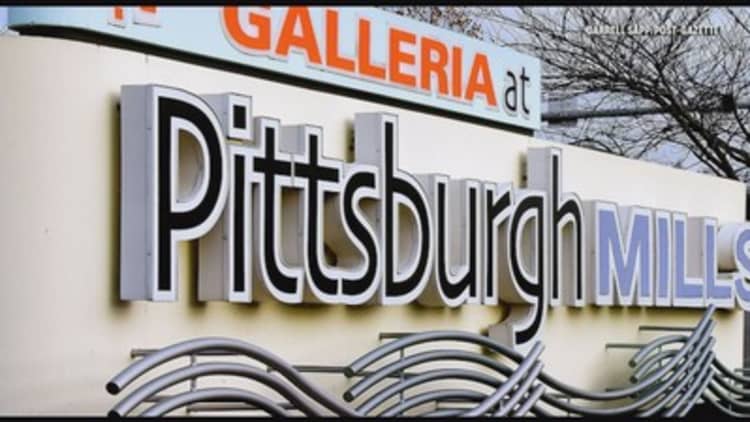For those monitoring the demise of American shopping malls, David Simon has some choice words for you.
On Simon Property Group's fourth-quarter earnings call, the CEO of the country's largest mall owner said he would not bore analysts with a lecture about the misunderstood mall industry — right before launching into a diatribe on that very topic.
Here is a transcript from that call, compiled by Seeking Alpha:
Now could be the time on the call where I could go into a lengthy philosophical discussion on the popular misconceptions about the mall business, created by the never-ending current public narrative.
And I could counter that by pointing [out] that we have 434 department stores in our portfolio, and only one is vacant, and how in the recently announced department store closing, we have only one closure in our portfolio, or how we have added more than 275 sit-down or quick-service restaurants, more than 20 entertainment concepts and more than 80 big-box tenants across our portfolio over the last four, five years, or how we've added mixed-use components to our centers in the last several years, we have built 10 hotels and residents representing nearly 3,000 units.
Or how according to a recent survey a Generation Z members — a group that outsizes millennials — 70 percent of those surveyed visit the mall at least once a month and visit more than four stores during the visit, or how the consumers still like to shop in stores because they want to touch and feel the products before they make a final decision.
Or how online retail sales have grown to less than 10 percent of total retail sales, and that the retailers who occupy our centers represent approximately two-thirds of those total online sales, or how leading e-commerce retailers, like Warby Parker, Blue Nile, Untuckit, Shinola, among others, are opening physical stores because of the inherent advantage a physical location provides as well as being a natural extension to the digital world.
Or how basket sizes are higher, return rates are lower in stores compared to online purchases, and margins are much higher in the store than they are in the Internet, or how emerging brands like GUIDEBOAT, NIC+ZOE, Peloton, to name a few, continue to see the mall as the launch pad to build their brand awareness as a result of the significant traffic they experience being at the mall, much like Apple or Microsoft did several years ago.
Or how we are making all these changes and enhancements to our center, even though Congress has tilted the scale towards e-commerce by not implementing the Marketplace Fairness Act, which [means] not requiring the sales and use tax to be paid by consumers who buy products online, even though they are required to do so under existing laws.
But I could do that, but I won't, because we've talked about that all before, so I'd rather focus on what we do and how we do it, and that is we reinvest in our properties, making them the best centers in the respective markets. We grow our earnings, we generate excess cash flow, we pay higher dividends, and we achieve all of this while maintaining the industry's strongest balance sheet. That's our model and that's what we do for the benefit of our shareholders, our communities, and our retailers. We continue to record solid key operating metrics and grow our cash flow.
Simon's comments underscore a growing divide in the industry, as investments into the country's most lucrative properties are extending their lead over struggling malls.
Indeed, Simon's 2016 funds from operations, a closely monitored metric among real estate investment trusts, rose 6.4 percent over the prior year, to $3.79 billion. That metric incorporates net income, amortization and depreciation, and subtracts any gains on the sale of assets.
WATCH: Pittsburgh mall sells for just $100



